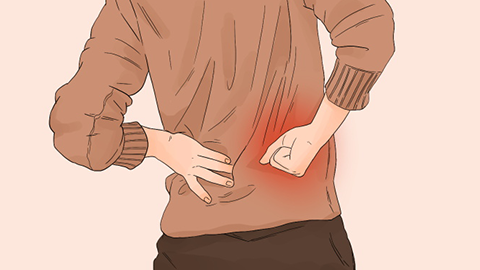What causes back pain and body aches from staying up late?
Generally, backache and soreness caused by staying up late may be due to poor posture during late-night hours, muscle fatigue from sleep deprivation, lumbar muscle strain, lumbar facet joint dysfunction, or lumbar disc herniation. It is recommended to seek medical attention promptly, identify the underlying cause, and receive symptomatic treatment under a doctor's guidance. Specific explanations are as follows:

1. Poor posture during late-night activities: Sitting for prolonged periods, bending over, or curling up while staying awake late can keep the lower back muscles constantly tense and create uneven stress on the spine, leading to backache and soreness. Adjust your posture when staying up late by keeping your back straight and using a chair that provides proper lumbar support.
2. Muscle fatigue due to staying up late: Staying awake prevents the body from resting, causing the lower back muscles to remain active continuously and consume excessive energy, resulting in fatigue-related aches. End the late-night session as soon as possible and ensure sufficient sleep to allow muscle recovery.
3. Lumbar muscle strain: Chronic late-night habits combined with frequent strain on the lower back can lead to chronic injury of the lumbar muscles. After staying up late, the body’s resistance decreases, worsening the pain, and pressing on the lower back causes obvious discomfort. Patients may follow medical advice to take medications such as diclofenac sodium sustained-release tablets, ibuprofen sustained-release capsules, or celecoxib capsules to relieve pain.
4. Lumbar facet joint dysfunction: Poor posture during late-night hours can displace the small joints of the lumbar vertebrae, causing surrounding ligaments and muscles to become tense, resulting in backache and soreness, with increased pain when turning or bending. Professional physicians should perform manual reduction to restore the joints to their normal position.
5. Lumbar disc herniation: Individuals already suffering from lumbar disc herniation may experience insufficient relaxation of the lower back muscles due to staying up late, increasing pressure on the intervertebral discs. This can cause the protruding nucleus pulposus to compress nerve roots, leading to backache and soreness, possibly accompanied by numbness in the lower limbs. Patients may follow medical advice to use mecobalamin tablets, vitamin B1 tablets, or Yaotongning capsules to nourish nerves and reduce inflammation.
In daily life, try to avoid staying up late and maintain a regular sleep schedule. When staying up late, pay attention to keeping the lower back warm and avoid exposure to cold. During free time, exercises such as planks and "flying swallow" movements can help strengthen the back and core muscles, improve lumbar stability, and reduce the occurrence of backache and soreness.




